Suppose you have a swimming pool in your backyard and a fence surrounding your yard. You might think, Do I need another wall around my pool? Pools are best for swimming and splashing, but they can also be risky if not properly protected.
We’ll discuss why having a fence around your pool might still be smart. Even if your yard already has a wall. We want to ensure you and your loved ones can enjoy your pool without worrying about accidents.
We’ll talk about how it keeps you and others safe and what you can do to ensure your pool is a secure place to enjoy.
Do I Need a Separate Fence for My Pool?
Suppose your whole property is already fenced. You might be wondering if you still need another fence around your pool. The answer mainly depends on the rules and safety standards in your area. In many places, having a fence around your pool is legal, even if your yard is already fenced. These rules are there to keep kids and pets safe.
Even with a fenced yard, a separate pool fence not only adds extra safety but also offers a prime opportunity for garden fence enhancement tips, turning a safety feature into an aesthetic asset.
It stops people from getting to the pool area without supervision, which lowers the chance of accidents. Find out if your local laws say you need a separate pool fence.
Contact your city or county’s building department or a local pool safety group. They can give you exact details about the rules in your area.
What’s the Price for Installing a Pool Fence?

The cost of putting up a fence around a pool can vary greatly depending on a few things. These things include what kind of fence you want, what it’s made of, how big it is, and how tricky it is to install. You might spend from $1,500 to $10,000 or even more on average. Some common types of pool fences include aluminum, vinyl, wood, and wrought iron.
Each of these materials has its price. Aluminum and vinyl fences are usually cheaper than wood or wrought iron ones. The size and shape of your pool area also affect the cost. If you have a big pool or want a special design that fits with the land, it could cost more; if you need gates, fancy decorations, or special safety stuff, that will make the whole thing more expensive.
Is a Safety Barrier Necessary for An Above-Ground Pool?

Putting up a fence around your above-ground swimming pool depends on the rules where you live and keeping things safe. In many places, you have to have a fence around both in-ground and above-ground pools.
The big worry is keeping kids safe, especially if they can easily get to the pool. In many areas, they say you need a fence for above-ground pools at least 18-24 inches tall. But these rules can differ, so it’s smart to ask your local building folks or pool safety experts about what you need to do where you live.
Even if you don’t have to by law, it’s a good idea to put up a fence around your above-ground pool to stop accidents and keep the area safe.
What’s the Most Budget-Friendly Fence Installation Option?

The price of a fence can change for different reasons, like the material you use. How big the fence is, and how difficult it is to put up. Chain-link fences are usually a good choice if you’re trying to save money because they’re strong and not too hard to install. Wooden fences can also be affordable if you pick the right kind of wood.
Pressure-treated pine is often cheaper than fancier woods such as cedar or redwood. Vinyl fences might seem pricier at first, but they can save you money in the long run because they don’t need a lot of maintenance.
Are There Penalties for Pool Owners without a Protective Fence?

Yes, you may have to pay a fine in many places if you don’t have a fence around your pool when the local rules say you should. They give these fines to ensure people follow safety rules and reduce the chances of accidents, especially with kids. The fine amount can differ depending on where you live and how serious the rule-breaking is.
To avoid getting fined and to keep your pool area safe. It’s important to look up the rules about pool fences in your area. You can ask your city or county’s building department or a local pool safety group for the specific rules. Putting up a wall that follows the rules keeps you on the right side of the law, makes your pool area safer, and stops people from getting in without permission.
Conclusion
Having a fence around your pool. It is a smart and safe choice, even if your yard is already fenced. A pool fence with a self-closing and self-latching gate is important. It keeps children from entering the pool area without adult supervision.
This extra barrier reduces the risk of drowning, which is a leading cause of accidental death for kids. Additionally, pool fences often meet local safety regulations. Installing one ensures you follow the law and avoid potential fines.
So, if you have a small pool or a big one, a fence around it is a wise decision to enjoy your pool while keeping everyone safe.




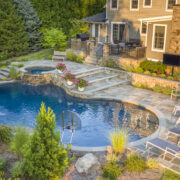

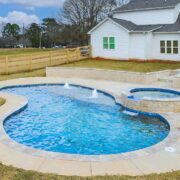

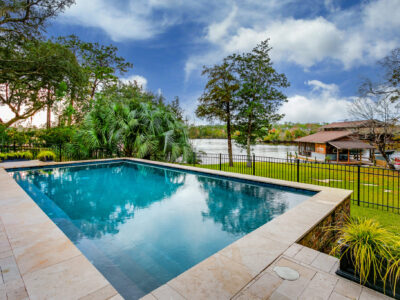
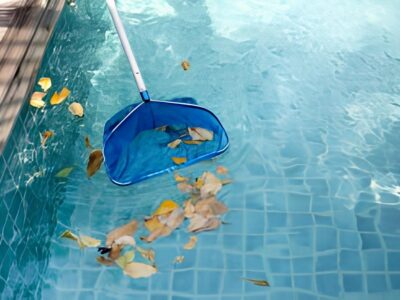

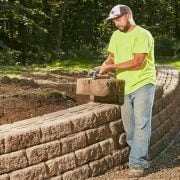


Comments